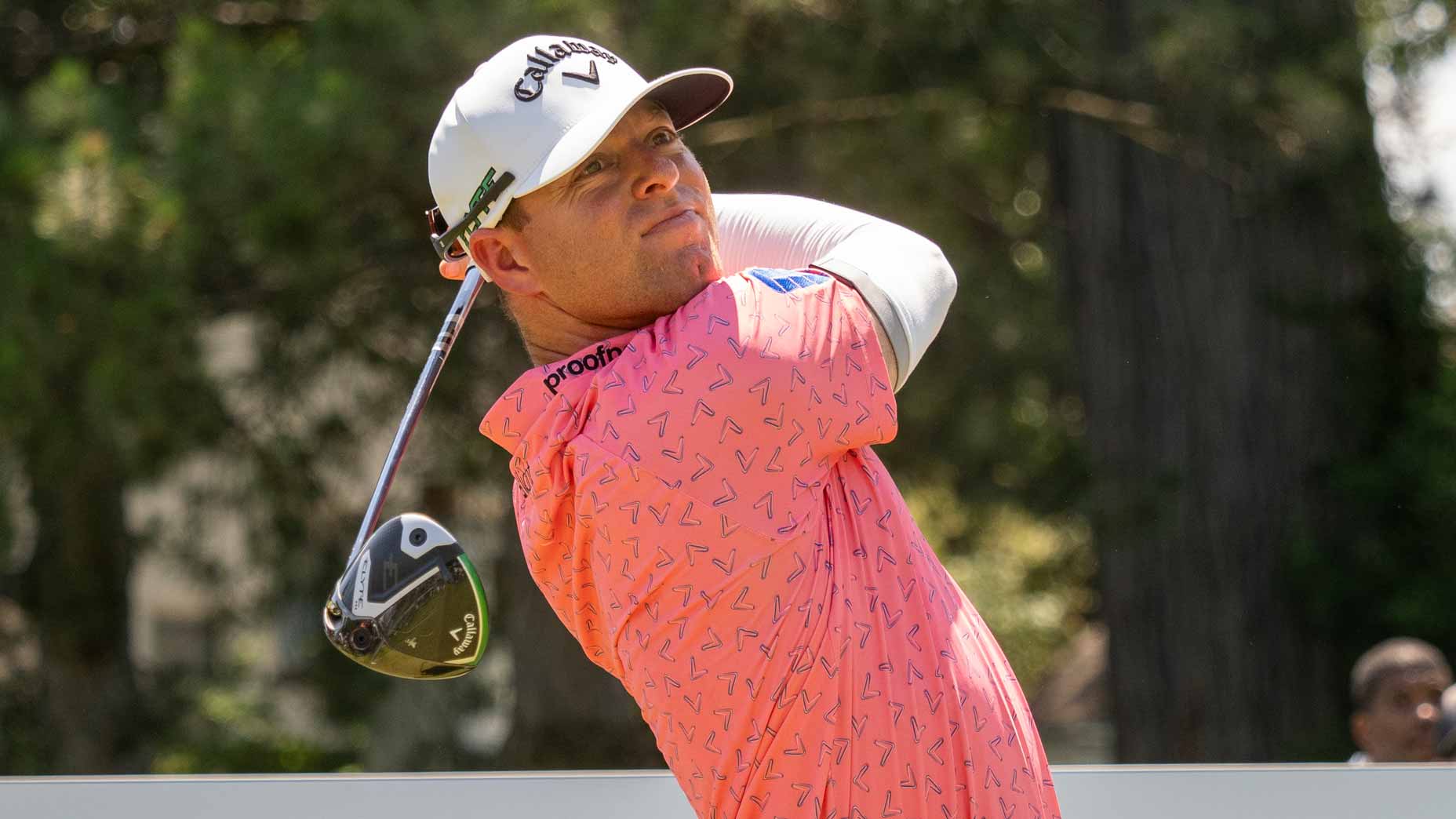Fully Equipped w/ Kris McCormack and Wadeh Maroun
How a Tour pro sets up their bag for playing overseas | Fully Equipped
On this week’s episode of GOLF’s Full Equipped, Max Greyserman explains what he does to his bag for links golf.How Max Greyserman became a certified golf gear nerd | Fully Equipped
On this week’s episode of GOLF’s Fully Equipped, Max Greyserman explained to Johnny Wunder how his gearhead journey began.Can L.A.B. Golf’s success be replicated in the driver market? | Fully Equipped
On this week’s episode of GOLF’s Fully Equipped, Johnny Wunder explains why it’s hard for a smaller company to break in to the driver market.Why getting fit for your golf shafts is essential | Fully Equipped
On this week’s episode of GOLF’s Fully Equipped, our gear experts explain why it’s essential that golfers test and get fit for their shafts.Why this part of iron design is more of a focus than ever | Fully Equipped
On this week’s episode of GOLF’s Fully Equipped, Kris McCormack discusses why you’re hearing more about this part of iron design.Here’s how wet conditions can impact your golf ball | Fully Equipped
On this week’s episode of GOLF’s Fully Equipped, Kris and Jack discuss what the conditions Sunday at Oakmont can do to a golf ball.What Bettinardi’s father-son operation means to them | Fully Equipped
On this week’s episode of GOLF’s Fully Equipped, Bob and Sam Bettinardi explain what their father-son operation means to them.Why do pros prefer this popular wedge process? | Fully Equipped Mailbag
The latest edition of GOLF’s Fully Equipped Mailbag dives into the differences between milled and forged wedges.Should I swap my 3-wood for a mini driver? Fully Equipped Mailbag
GOLF’s Jonathan Wall delves into the question of whether it’s worth ditching your 3-wood in favor of a new mini driver.How high should I tee up the golf ball? | Fully Equipped Mailbag
The latest edition of GOLF’s Fully Equipped Mailbag takes a look at tee height, as it pertains to the driver, fairway wood and hybrid.Is a 10K driver worth the money? We found out | Fully Equipped Mailbag
For golfers wondering if upgrading to a 10K product is worth the dinero, we pitted G430 Max 10K against G430 Max in a head-to-head test.What’s the difference between cast and forged golf clubs? | Fully Equipped Mailbag
Some golfers swear by forged irons and won’t play anything else, while others believe cast is just as good. But what’s the difference?This 2023 driver exceeded our expectations | Fully Equipped Mailbag
The latest Fully Equipped mailbag fields a question about designs that caught our eye from the latest crop of clubs.How do I combat sweaty hands on the course? | Fully Equipped Mailbag
The latest edition of GOLF’s Fully Equipped mailbag takes a look at the best options to combat sweaty hands.We put Nikon’s latest rangefinder to the test | Proving Ground
Nikon’s Coolshot Pro II Stabilized rangefinder has plenty of bells and whistles. The latest Proving Ground analyzes the benefits.How good are Mizuno’s JPX925 Hot Metal irons? We found out | Proving Ground
Mizuno’s JPX Hot Metal lineup lived up to the hype — and then some — in the latest Proving Ground head-to-head test.Is Titleist’s GT driver worth the fanfare? We put it to the test | Proving Ground
For years, I’ve worried about the “big miss” with the driver. Titleist’s GT3 helped change my way of thinking on the tee box.How XXIO’s lightweight clubs make golf so much easier | Proving Ground
XXIO offers premium lightweight clubs to help moderate swing speed golfers gain control and distance, and we put them to the test.Are Cobra’s Limit3d irons worth the $3K price tag? | Proving Ground
The latest edition of GOLF’s Proving Ground pits Cobra’s Limit3d against the writer’s gamer iron set to see if they live up to the hype.I tried it: These user-friendly wedges make short-game shots much easier
We tested Cleveland’s Smart Sole Full-Face wedges to find out if they make club selection around the greens easier.Does this red-hot putter live up to the hype? | Proving Ground
The recent increase in L.A.B. Golf usage on Tour led GOLF’s Jonathan Wall to wonder if the putter could live up to the hype.Latest Podcasts

Join InsideGOLF today!
GOLF.com’s membership program is one of the game’s best values. For only $39.99/year, you’ll get access to exclusive content and also a host of discounts and promotions, including…
- Dozen Srixon Z-STAR XV Golf Balls (+$45 retail value)
- $20 Instant Credit at Fairway Jockey
- One Year (8 issues) of Golf Magazine (+$79 Newsstand value) – U.S. members Only
- +600 Issue Golf Magazine Digital Archive (1959-Present)
- Bucket-List golf trips and experiences
- FREE True Spec Fitting with any club purchase
- $100 OFF qualified purchases at Miura and Fairway Jockey
- 50% OFF new Golf Logix App/membership
- Plus so much more!

























